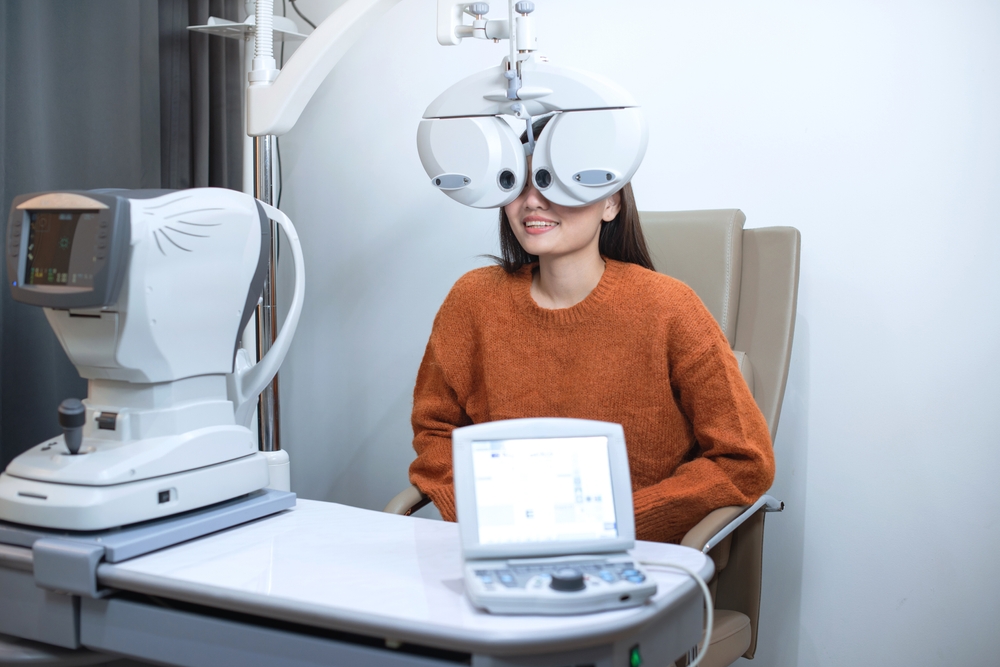
Regular eye exams are an essential component of maintaining optimal eye health and overall well-being. These exams go beyond simply checking your visual acuity; they can detect and prevent a wide range of eye conditions that may have otherwise gone unnoticed.
What is a Comprehensive Eye Exam?
A comprehensive eye exam is a thorough evaluation of your eye health and visual system. It involves a series of tests and assessments that assess your visual acuity, eye coordination, eye pressure, and overall eye health. During a comprehensive eye exam, your optometrist will examine both the external and internal structures of your eyes to detect any abnormalities or signs of disease. This examination may also include pupil dilation to get a better view of the retina and optic nerve.
What to Expect During a Comprehensive Eye Exam
The exam typically begins with a discussion of your medical history and any current eye concerns you may have. Your optometrist will then proceed with a series of tests to assess your vision and eye health. These tests may include a visual acuity test, which involves reading letters on an eye chart, and a refraction test to determine your prescription for glasses or contact lenses. Other tests may evaluate your eye coordination, depth perception, and peripheral vision.
Common Eye Conditions Detected During Regular Eye Exams
During regular eye exams, optometrists can detect a wide range of eye conditions and vision problems. Some common eye conditions that can be detected during regular eye exams include:
- Refractive Errors: These include nearsightedness (myopia), farsightedness (hyperopia), and astigmatism, which affect the eye's ability to focus light properly, leading to blurred vision.
- Glaucoma: A group of eye conditions that can damage the optic nerve, often due to increased pressure within the eye, and can lead to vision loss if left untreated.
- Cataracts: Clouding of the eye's natural lens, which can cause blurry vision, faded colors, and increased sensitivity to glare.
- Macular Degeneration: A condition that causes gradual loss of central vision due to damage to the macula, affecting the ability to see fine details and perform tasks such as reading and driving.
- Diabetic Retinopathy: A complication of diabetes that affects the blood vessels in the retina, potentially leading to vision impairment or blindness if not managed effectively.
- Dry Eye Syndrome: Characterized by insufficient tear production or poor tear quality, leading to discomfort, irritation, and blurred vision.
- Strabismus: A condition in which the eyes are not properly aligned, leading to crossed eyes or a lazy eye (amblyopia) if not treated early.
- Keratoconus: A progressive thinning of the cornea, leading to distorted vision and increased sensitivity to light.
The Importance of Regular Eye Exams
Regular eye exams are crucial for the early detection and management of these and other eye conditions, as well as for assessing overall eye health and vision quality. Early intervention and appropriate treatment can help preserve vision and maintain eye health in the long term.
Regular eye exams are not only crucial for maintaining good vision but also for safeguarding your overall health. The eyes can provide valuable insights into your overall well-being, as many systemic conditions can manifest through changes in the eyes. Your eye doctor may detect signs of hypertension, diabetes, autoimmune diseases, or even certain types of cancer. By identifying these health concerns early on, you can seek appropriate medical care and prevent potential complications.
How Often Should You Have a Regular Eye Exam?
The frequency of regular eye exams varies based on age, overall health, and any existing eye conditions. As a general guideline, it is recommended that adults aged 18 to 60 have a comprehensive eye exam annually. However, individuals with certain risk factors, such as a family history of eye disease, diabetes, or a high prescription, may require more frequent exams. Children should have their first eye exam at six months of age, followed by further exams at age three and before starting school.
Schedule Your Eye Exam with Cleary Square Eyecare Today
By undergoing comprehensive eye exams at recommended intervals, you can ensure early detection and timely treatment of any potential eye conditions or systemic health issues. These exams offer a comprehensive evaluation of your eye health and provide an opportunity for proactive intervention and preventive care.
Schedule your comprehensive eye exam and take the first step towards preserving your vision and eye health, visit Cleary Square Eyecare at our office in Hyde Park, Massachusetts. We are committed to providing quality eye care services and products for the entire family. Please call (617) 958-5100 to book an appointment today.




